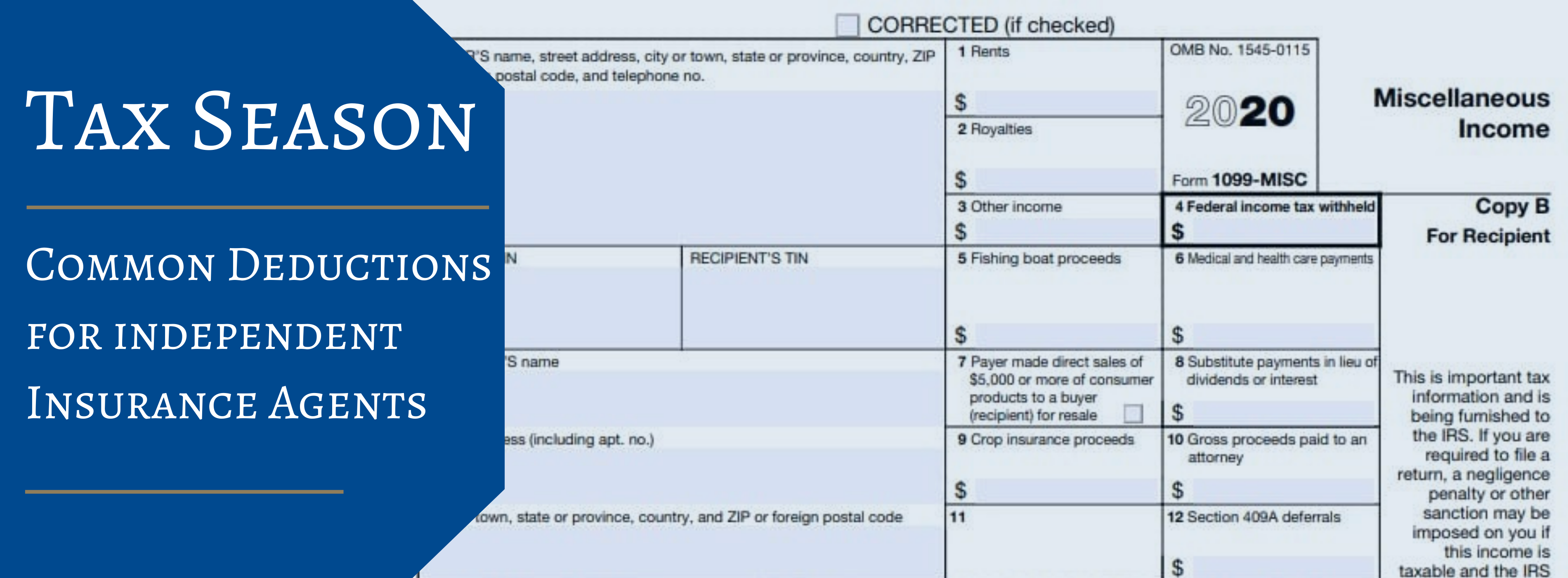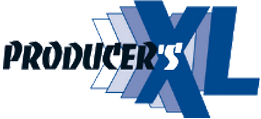
February 16th, 2021
Considering the time of the year, in this week’s edition of “Sean From the Field”, I thought it might be a good idea to share with you some common tax deductions for independent insurance agents. Yes, this is the same article I provided this time last year but is still relevant. After all, we are in the world of 1099’s, maybe some of you could use some ideas for tax deductions. Before I get started, it should be noted I am not a tax professional and cannot advise you on how to file your taxes. I am merely pointing out deductions available to your advantage.
First off, we need to know what constitutes a deduction. According to the IRS Publication 535 (under Business Expense Document), a deduction is any business expense deemed ordinary and necessary to

Sean McBride
Field Marketing
800.541.6705
A necessary expense is one that is helpful and appropriate for your business like fees you pay for industry licenses. The following list of deductions is directly from Publication 535. It is a quick, concise overview of deductions available and provides valuable resources, such as MileIQ, to help you manage these deductions moving forward.
Car Allowance
- Mileage driven → MileIQ can make this easy
- Gasoline
- Oil
- Repairs
- Depreciation
- Parking fees
- Tolls
- Registration fees
Note: Use Schedule C and Form 2106. The standard mileage rate as of 2019 has gone up slightly to 58 cents per mile. Beginning on January 1, 2020, the standard mileage rates for the use of a car (also vans, pickups or panel trucks) will be 57.5 cents per mile.
Insurance
- Health insurance
- Long-term care insurance
- Dental insurance
- Business insurance
- Part of your homeowner’s insurance
- Vehicle insurance
Note: Use Schedule A, Form 2106 and Form 1040. You can only deduct insurance if it’s for your business or if you’re self-employed. For homeowner’s insurance, you can deduct part of it based on the square footage of your home office.
Equipment & Supplies
- Computer
- Printer
- Scanner
- Paper
- Ink
- Software
- Maintenance
- Paper clips
- Postage stamps
- Presentation folders
- Copying costs
- Overnight deliveries
- Stationary
- Pens
- Paper
- Stapler
- Docusign
- Internet fees
- Greeting cards
Note: Use Schedule C. Your computer must be used at least 50% for business.
Continuing Education
- State licenses
- Renewals
- Courses
- Certifications
- Subscriptions to professional, technical, and trade journals that deal with your business field.
- Books
Note: Use Schedule A. Any education that qualifies you for a new career will not count — only continuing education will.
Work Travel
- Meals and entertainment
- Flights
- Baggage fees
- Taxis
- Hotels
- Tips
Note: Use Form 2106. Half of the meals and entertainment tab can be deducted for business-related meals and entertainment. You must keep receipts, a note of who was entertained, and what the purpose of the meeting was. Note that if the meal is lavish or outrageously expensive, it will not count as a valid deduction.
Office Space
- Home office
- Utilities
- Heat
- Lights
- Power
- Telephone service, but only for long-distance calls or a second line (the first line is not deductible)
- Internet
- Water
- Sewage
- Office desk
- Repairs
- Reconditioning floors
- Repainting the interior or exterior walls
- Cleaning and repairing roofs and gutters
- Fixing plumbing leaks
Note: Use Form 8829, Schedule C, and Schedule A. For these deductions, you must divide the office space square footage by the square footage of the entire residence. Once you figure the percentage of your home that is solely for your business, you can calculate the deductions above.
Miscellaneous
- Advertising
- Charitable contributions
- Tax preparation fees (only for the part of your tax return related to your business)
So, you have some ideas now of possible tax deductions. I want to reiterate, CONSULT A TAX PROFESSIONAL to assist you in filing taxes. Hiring a CPA is another great idea as they are licensed by the state and apprised of current tax laws. When it comes to finding deductions, it is your responsibility to maintain documentation, i.e. receipts. I hope this provides some guidance to you or maybe reaffirms what you already knew. As always, thank you for your business.
Be Kind, Make a Difference.
